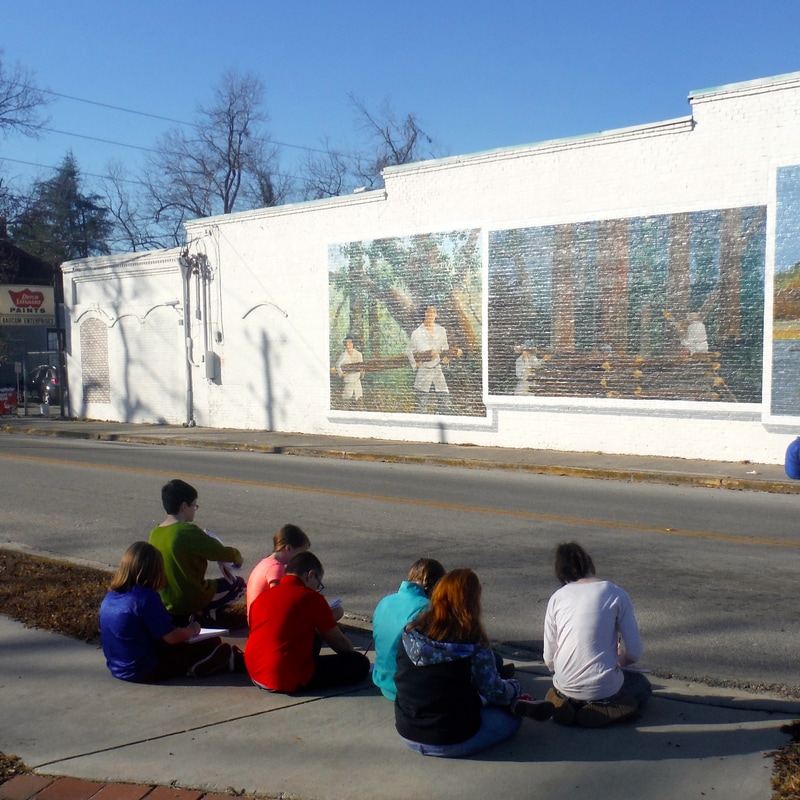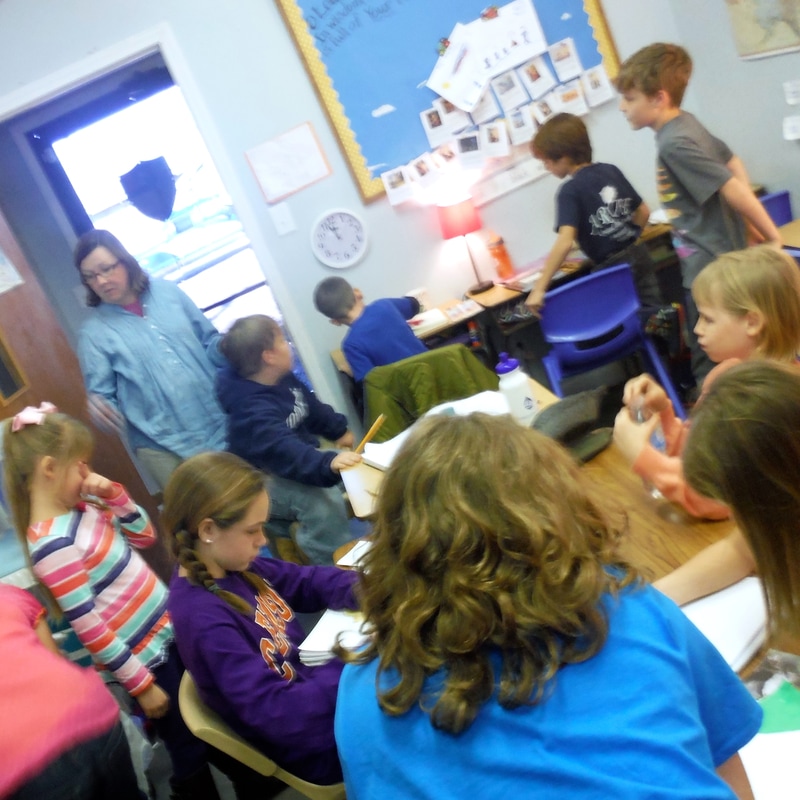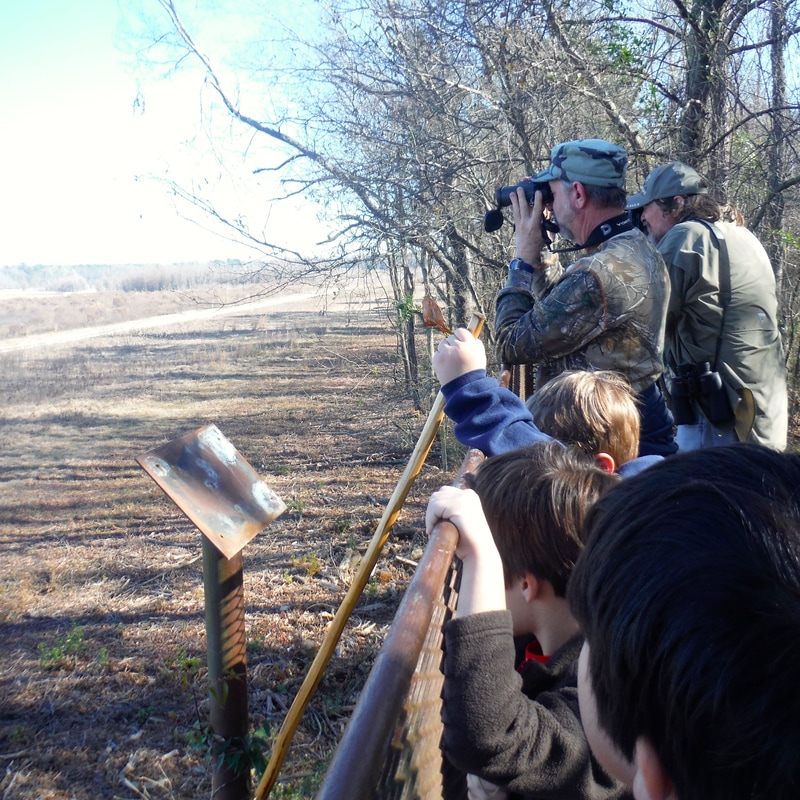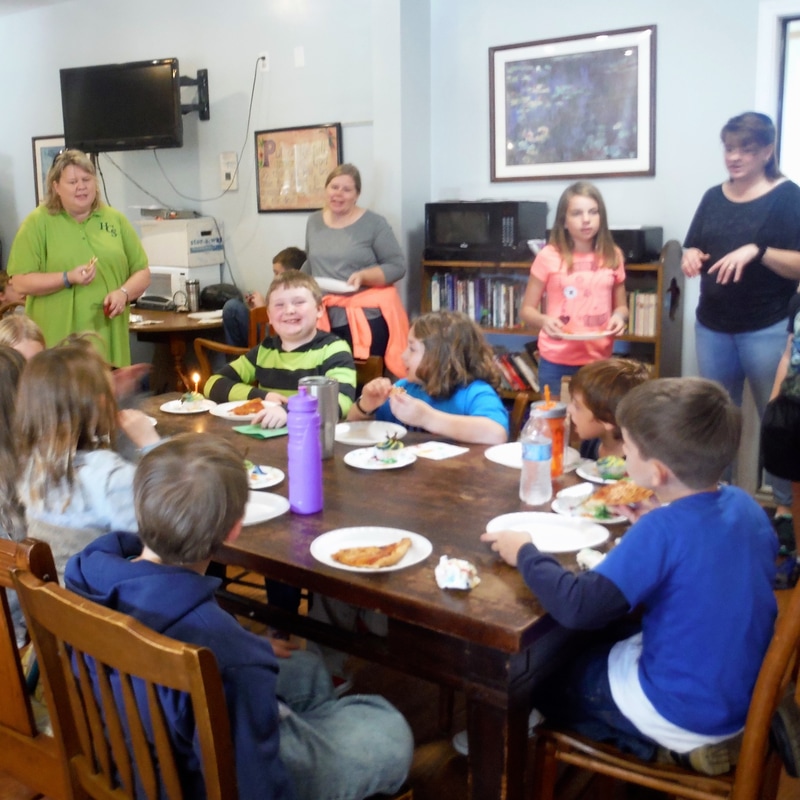|
In our last post, we talked about what happens when a closely knit, core group of students take ownership of their learning. Putting on new habits is not easy for transfer students who tend to get through oral lessons, readings, worksheets, and then mentally checking out until the next demand. It takes time to adjust to more open-ended ways of doing things: choosing passages for copywork, narrating what interests them in a reading, adding to a conversation about a reading, deciding what to notebook after a nature walk or for a book of centuries entry, etc. They are not used to having so much responsibility -- every day they clean their cubbies, do chores, and set the example for the primary classes at morning meeting. Imagine the first half hour of the first day of school for an transfering elementary student. Primary and elementary classes gather in the big room for the morning meeting for an abbreviated "morning time." We sing a song (hymn, praise, folk, patriotic, or holiday) followed by the pledge of allegiance. A teacher reads a psalm (not a devotional) and hands fly up. A fourth grader asks what a word means. A sixth grader notices that the psalm talks about something that reminds them of David or Jesus. Even first and second graders have something to say about a psalm! After that, the elementary class heads to fifteen minutes of Spanish. A lot of short lessons are packed into that half hour. The rest of the morning offers language arts lessons and lots of narration. The class writes a narration of a chapter from a book they read the night before for homework -- without talking about it, without questions to jog their memory, without even looking at a book. They have a blank piece of paper, and that is it! The same is true for oral narration -- after a reading, books are closed. One student retells, another student picks up the thread, and it continues. All the while the experienced students add on things that have not been mentioned. Along the way they generate their own questions, make their own connections, and come up with ways to explore the ideas further. The teacher monitors the process and offers guidance as needed. At first a new student struggles. Learning to pay attention to a ten- to fifteen-minute reading well enough to retell the material is hard! We often hear "Oh, I know!" followed by, "Never mind. It flew out of my head." First narrations are halting, and words are jumbled, and names and places are forgotten or confused. New students are challenged by memorizing poems and Bible verses and they have no idea what book to use for copywork, and studied dictation addresses grammar, punctuation, capitalization, as well as spelling. Life without worksheets sounds great until faced with a blank page and wondering what to draw or write. Students are broken up into many small groups for individualized math instruction and sometimes "build" their own worksheet by using dice to come up with numbers for problems. Some are actually excited about math. Math? One day we focus on paper sloyd and the newbie wonders why the teacher demands exact measurements. Then a more experienced student walks over with a tray that he made while novices were still learning how to draw diagonals correctly. He leans over and says, "Ms. Tammy may be picky but you'll thank her later." Then suddenly someone asks for permission to make an announcement and says, "I would like everyone to know that I have been working hard on a percent problem and I finally, finally, finally understand it." She does the Rocky stance, and everyone claps. Thursday after lunch launches the end of the school week which is noticeably different. Elementary and above meet in the big room to do Shakespeare's Macbeth. They break up into small groups to practice a five-minute scene and meet in the big room for one group to act it out. Some kids are total hams and come up with all kinds of improv. Some are shy and simply read their lines. Even fourth graders get to read lines and most love it because they still remember how to play and play is the thing!
0 Comments
Leave a Reply. |
HCSA community called to offer another way to learn for students in Clarendon County Archives
December 2019
|




 RSS Feed
RSS Feed
